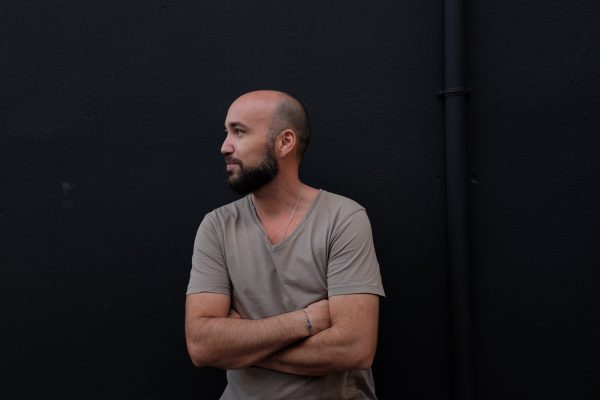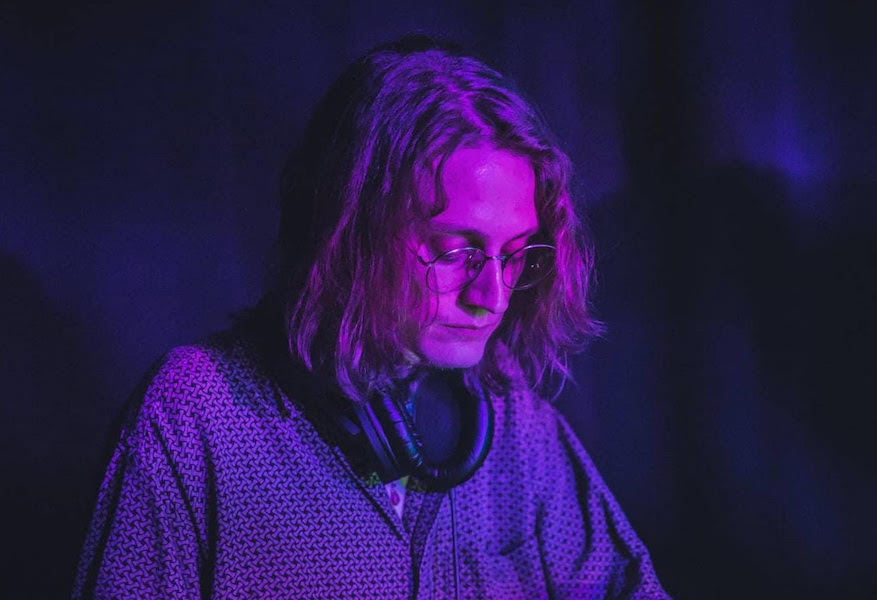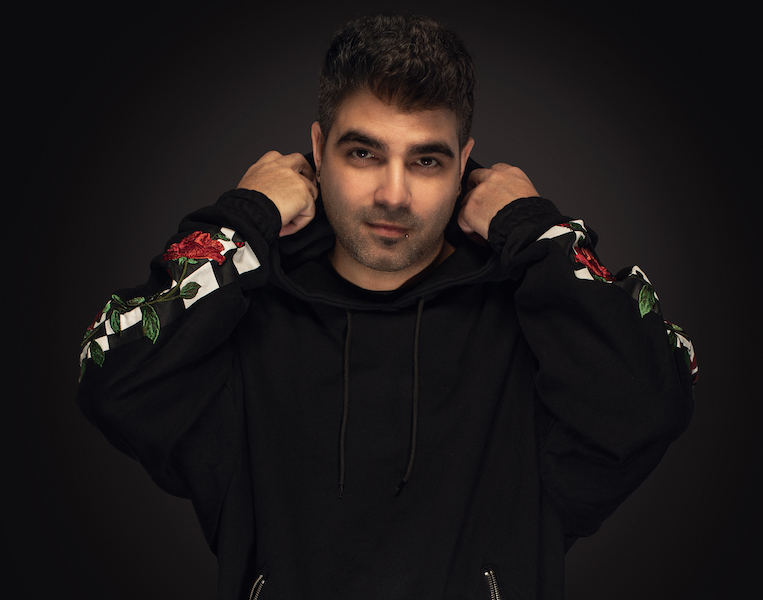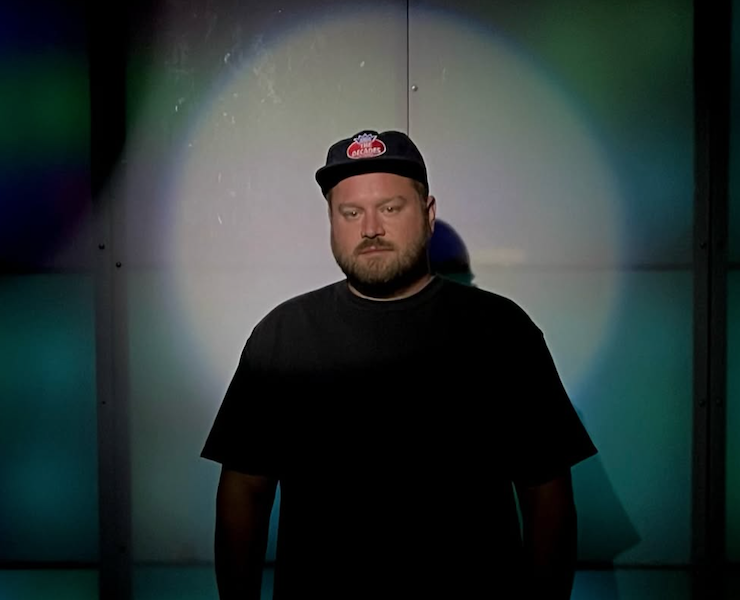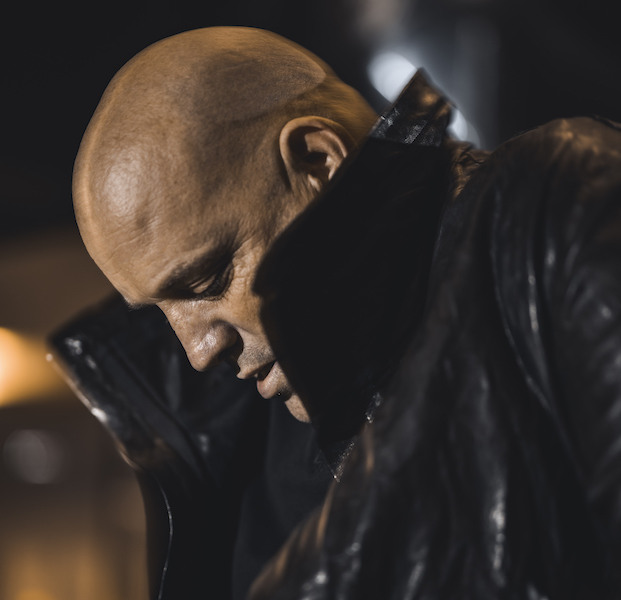Karim Sahraoui is a unique figure in dance music, and his story is a genuinely warm tale of doing things for the right reasons. Guided by family, faith, and Detroit, the French maestro has led a storied career.
A trusted comrade to some of electronic music’s most illustrious characters, such as Derrick May, Sahraoui has played a vital role in techno’s movement towards more melodic regions. Through releases on the likes of R&S, Transmat, Cocoon, and Compost, Karim’s output has been tremendous for the better part of 20 years.
Following the release of Ian O’Donovan’s Still Waters LP on XYZ, there was only one man to launch the remix pack for the album. Karim’s melodic techno and groove-driven arrangements reflect O’Donovan’s production style, and play a key role in the Still Waters LP. Karim leads the EP as he connects with Sentient City, lengthening the arrangement while adding a touch of melancholic euphoria via the original strings.
Following the release last Friday, we caught up with Sahraoui to touch base on a range of subjects. We’re thrilled to have the opportunity to pick the brain of one of dance music’s most unique figures.
WWD – Karim, thanks for joining us today. Where in the world are you at the moment?
Karim – Hello there, I’m actually living in the South of France a place called Aix en Provence, near by Marseille. I moved back from South Asia last year.
WWD – Tell us about your last couple of months; how have you passed the time during the pandemic?
Karim – I’ve been busy finishing a Bible Study, finished several remixes, and I’m also dedicating myself as Pizza Chef in a restaurant. I do like multi-tasking. God gave us talents, we only need to discover them.
WWD – Everybody has been affected in different ways by the Coronavirus, and artists are amongst the most impacted. How do you feel the crisis will change life in the long term for electronic music producers?
Karim – Well to be honest, I think it’s a good thing in a way. The worldwide scene has been infected by different viruses called money, opportunism, and marketing that have nothing to do with the core of the electric music scene. In my opinion, it’s the right time to re-appropriate the whole thing with the genuine approach of this movement that was lost a long time ago. It’s also a time of reflection about the real reasons for being a DJ or artist.
WWD – Although we are in extreme times, it’s certainly not the first global crisis we’ve seen. What have been other difficult periods in your long career as a producer?
Karim – In the past, back in 2007/2008, I was running a few record labels and the Vinyl/Digital crisis came. Lots of vinyl distributors have shut down, and obviously lots of labels too. I was totally fed up.
But this time I’ve not been affected personally, because God gave me a direction for my family and myself by going back to a day job beside making music. Reconnecting with the real world has been a blessing for me. Back to ‘normal life’ can be a good thing, it keeps your feet on the ground to the reality of life.
WWD – What’s been the silver lining of the pandemic for you thus far?
Karim – Trusting in God has been my silver line for the last 10 years. I have no fear of the future or to lose anything, only because I try my best to stick on God’s promises for my family and myself. By doing this, it brings me joy even in hardships or difficulties.
WWD – Moving on to the music… Many congratulations on the remix for Ian’s Sentient City! How did you get connected with the Still Waters project?
Karim – Ian and I have known each other for a long time now, as we were label mates on Bedrock, but we’ve never been in a project together.. The story behind it is very common I guess. One day i’ve received a remix request from him and I was excited because I knew that this project would have been great quality even without listening to it 🙂
I’ve listened the whole album project, then I came across Sentient City… What i’ve really liked on this track in comparison to the others is the deepness of it. I do like to challeng myself by taking a track that isn’t the most easy one to remix. People that know my music will understand why I’ve chosen this one. Strings and melodies are the elements that are always in my tracks.
WWD – What do you look for in a track when considering its remix-ability?
Karim – What I’m looking for essentially behind the original tracks in order to add my personal touch is the atmosphere, the positiveness, or even a small element that will speak like a bassline, a string, or even a voice. Beside that, I try to keep the vibe of the label. House or Techno, you name it, I don’t care. Music has to be something that brings positive things.
WWD – You are no stranger to full length releases, as you presented your top notch ‘Faith’ LP at the end of last year. What role do albums play in electronic music, a scene where EPs and single releases dominate the landscape?
Karim – Thanks for the compliment 😉 First of all, in my opinion, a full length has to be a full concept, not just a compilation of tracks. It has to be a moment or a milestone in your life as a producer that will define a story to tell. For example, Faith has been made in South Asia in a moment where i was experiencing lots of things in my life, spiritual and emotionally. A full length LP has the power of speaking to more people, only because it’s a longer message that you can preach.
WWD – The label landscape is also shifting significantly throughout music. Having released on pillars of dance music such as Compost and Transmat, while also launching your own label Mirakles music, you’ve seen many sides of releasing music in the modern era. What benefits do the major dance labels bring to an artist, and how do these compare to the artist-run or niche labels that are also crucial to industry?
Karim – It has been a longtime that major labels aren’t bringing anything to artists, due to the fact that there are so many labels and (so called) artists now. It will bring only one thing, actually, which is a bit of exposure. If the music is good, it will remain forever. The purpose behind the music is the most important. What’s the message? What’s the artist’s intention? To be more famous? How many niche labels became famous by doing things simply? And how many major labels became nothing today, just selling a few hundred copies on vinyl, and very few downloads? I would say that today nothing is major, and nothing is niche because it has become one genre and one way of producing music.
WWD – Tell us about the role Detroit, and in particular Derrick May, has played in your journey thus far.
Karim – Detroit’s music has played a major role for anyone in music, worldwide over decades. I’m thinking about Motown records, including artists like Steve Wonder and many other legends. The artists there are more genuine than some other parts of the world, due to multiple facts like segregation (yes it has to be mentioned)… Racism (social, ethnic)… Unemployment… sounds a bit odd but it’s a true fact. Fighting to survive has become a way of life in that part of the earth, and that’s the reason why their message has this kind of genuine signature with no compromise – a true spirit.
My first experience in Detroit was back in November 2005, where I spent 10 days together with all the Underground Resistance members. I’ve had the privilege to live there as a true Detroiter. Mike (Banks) took me on a special journey to show me the true face of Detroit by day as by night. This was an unforgettable trip, and from that day I’ve understood the message behind all those people raising their voices, and trying to make something happen for the city they were living in.
The first time I’ve met Derrick was back in 1995, we’ve played a party together in the South of France, then we saw each other in Amsterdam few times where he was playing quite often due to his connections with some guys I knew also like Steve Rachmad.
Derrick always told me that he wasn’t interested in signing only tracks, but he was longing to sign a personality; Someone that has something to say a true purpose behind it. When we agreed to release the first EP on Transmat, he told me that it was the perfect time for me to release my music under my real name, and not to come back under my Djinxx or other moniker and I’ve really liked the idea. It was a challenge for me to come back as an unknown artist, but in a way very exciting too. I’m very honored today to be part of this legendary label, among others, and i’m truly thankful to God for that.
WWD – Religion plays a pivotal role in your life, both in and out of music. Tell us about your faith, and how it’s guided your career in electronic music.
Karim – I always say that religion won’t make you a better person, but a true personal relationship with God will. Seeking who he is, and understanding who he is; that’s my daily goal. It gives me strength and guidance in all aspects of my life. I understood the true meaning of the coming of Jesus-Christ, and the power of his sacrifice for me. I felt the love of God, and I’ve been moved by his words like nothing before. And the fact that Jesus-Christ came to serve others, rather than to be served, that was also a big revelation to me. So yes when I put god first in every actions of my life, I can see the blessings even when strange situations happen. It is the way we interpret them that is changing everything.
WWD – Looking back at your storied career, you’ve called almost every corner of the world home at some point. What cities have a special place in your heart?
Karim – Yes i’ve moved almost 50 times in my life, but the places I like the most are Malaysia and Thailand. South East Asia is something special to me and my family. I really do like the pace of living in these countries, the abundance of nature, the food is amazing, and people are simple. I look forward to going back one day, after my Bible school graduation to serve the Lord full time with my family.
WWD – How important is the global nature of electronic music, with unique and diverse scenes thriving worldwide?
Karim – Well to be honest, I think the music industry has standardized everything, and that’s the major problem today! I don’t hear lots of « new » things along my way. There are lots of good productions, well made, but in terms of diversity i’m not really sure about it. The way that Ableton has changed the way of making music, I personally don’t like it. Maybe because I’m a old school guy, or just ignorant, but you must forgive me for that.
WWD – What’s the most exciting non-music plan on your calendar for the next couple of months?
Karim – I’ve planned to go back to university, to go deeper in my Bible studies. This will be for like two years. Beside that, being involved in helping the needy like Jesus-Christ would do. And of course continuing my Pizza chef position!
WWD – Are there any exciting music-related projects in the works?
Karim – Yes I’m training my elder daughter on how to use Logic Pro X and how to produce a track. She plays piano, and God gives her lots of inspiration..that’s promising. And for myself, i’ll probably release some of my Mirakles music tracks on vinyl. I’ve got a CD album with a compilation of my Techno tracks, which i’ve released on my previous label Sahkatek, who were available only on vinyl on Blue Arts Music from Japan fall this year.
WWD – Karim, thanks again for the chat! We’ll be jamming the Sentient City remix all summer long 🙂
Karim – it was a great pleasure for me to share some words with you guys. You are doing an amazing job, despite the current situation. I’m sending you all my blessings and wish you all the best. Thanks for playing my remix too 😉 by the way sorry for my english 😀 God bless you!
Ian O’Donovan – Still Waters Remixes [XYZ020]
Release Date – July 24th, 2020
Stream & Purchase – https://ampl.ink/1j8oJ
Connect with XYZ – https://linktr.ee/wwd.xyz
Stream releases in full via Spotify: https://spoti.fi/2uDd07z
Connect with Karim Sahraoui
Soundcloud – https://soundcloud.com/karimsahraoui
Facebook – https://www.facebook.com/MiraklesMusic/

